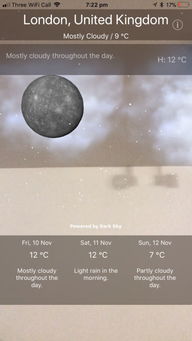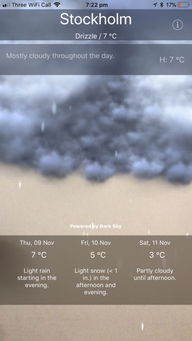Warren Ar Weather: A Comprehensive Guide
Are you curious about the weather in Warren, Arkansas? Look no further! This article will delve into the various aspects of the weather in Warren, providing you with a detailed and multi-dimensional overview. From temperature and precipitation to climate patterns and seasonal variations, we’ve got you covered.
Temperature and Climate

Warren, Arkansas experiences a humid subtropical climate, characterized by hot summers and mild winters. The average annual temperature is around 65掳F (18掳C), with temperatures ranging from the low 30s掳F (-1掳C) in winter to the mid-90s掳F (35掳C) in summer.
| Month | Average High (掳F) | Average Low (掳F) |
|---|---|---|
| January | 50掳F (10掳C) | 32掳F (0掳C) |
| February | 58掳F (14掳C) | 36掳F (2掳C) |
| March | 68掳F (20掳C) | 45掳F (7掳C) |
| April | 78掳F (26掳C) | 53掳F (12掳C) |
| May | 88掳F (31掳C) | 62掳F (17掳C) |
| June | 92掳F (33掳C) | 68掳F (20掳C) |
| July | 93掳F (34掳C) | 69掳F (21掳C) |
| August | 92掳F (33掳C) | 68掳F (20掳C) |
| September | 82掳F (28掳C) | 58掳F (15掳C) |
| October | 72掳F (22掳C) | 47掳F (8掳C) |
| November | 58掳F (14掳C) | 36掳F (2掳C) |
| December | 50掳F (10掳C) | 32掳F (0掳C) |
Precipitation and Weather Patterns

Warren receives a significant amount of precipitation throughout the year, with an average annual rainfall of around 50 inches (127 cm). The wettest months are typically May and June, while the driest months are December and January.
Thunderstorms are common in Warren, especially during the spring and summer months. These storms can bring heavy rainfall, lightning, and occasionally tornadoes. The area is also prone to flooding during heavy rainfall events.
Seasonal Variations

Warren experiences distinct seasonal variations, with each season bringing its own unique weather patterns.
Spring (March to May): Spring in Warren is characterized by mild temperatures and frequent thunderstorms. The area starts to see an increase in rainfall during this season, leading to lush greenery and blooming flowers.
Summer (June to August): Summer is the warmest season in Warren, with high temperatures and humidity. Thunderstorms are frequent, and the area can experience occasional heatwaves.
Autumn (September to November): Autumn brings cooler temperatures and less rainfall to Warren. The area experiences a beautiful display of fall foliage, with vibrant colors in the trees.
Winter (December to February): Winter in Warren is mild, with temperatures rarely dropping below freezing. Snowfall is rare, and the area experiences a brief period of cold weather before transitioning into spring.
Climate Change and Future Projections
Like many regions around the world, Warren is








